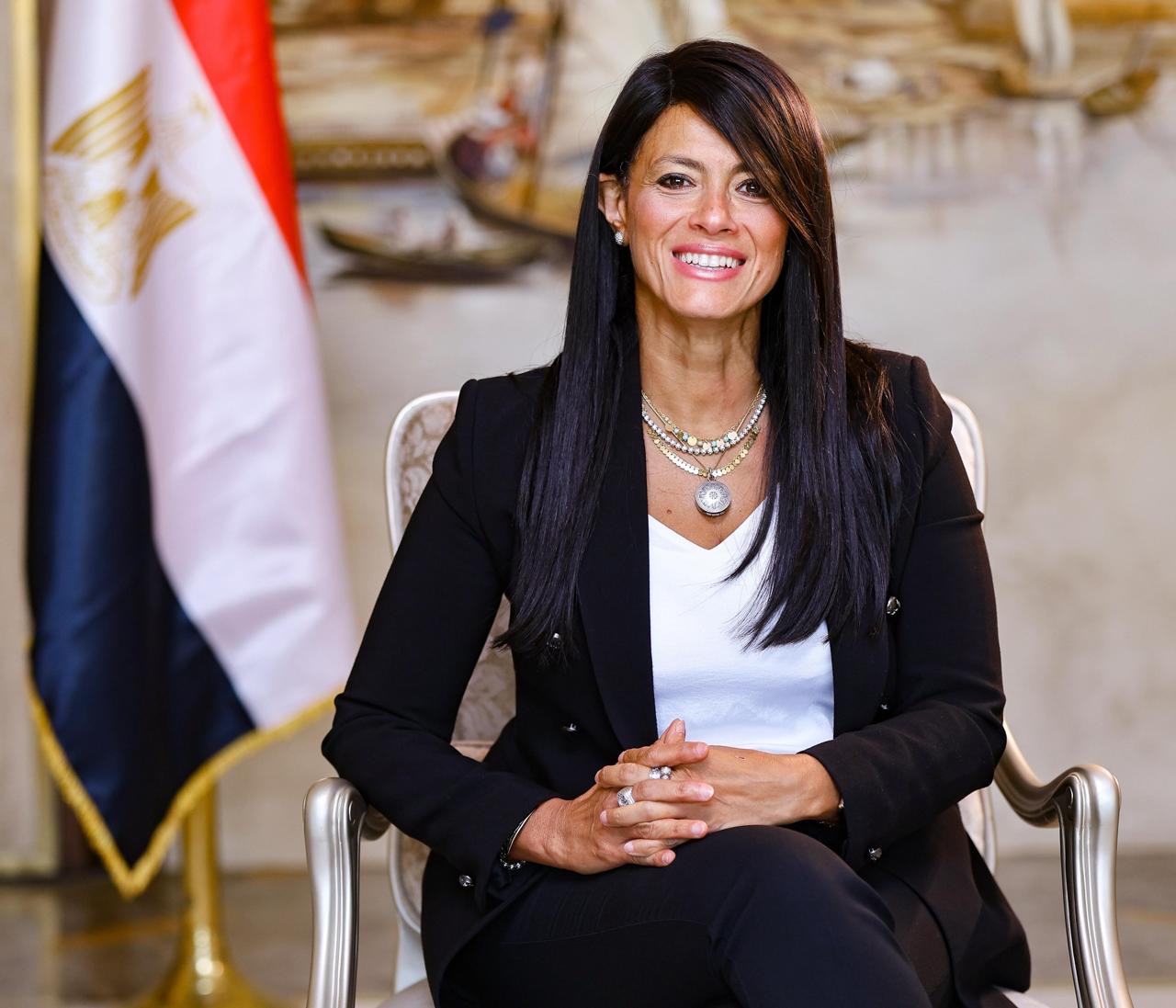• Al-Mashat: The European Union is among Egypt’s largest international partners in the fields of trade, investment, and development cooperation.
• Continuous follow-up with national entities and the European side to implement the economic component of the Strategic Partnership.
H.E. Dr. Rania Al-Mashat, Minister of Planning, Economic Development and International Cooperation, received a report on the key efforts of the Cooperation Sector with financial institutions and European partners, in light of the Ministry’s role in following up on the implementation of the economic component of the Egyptian-European Strategic Partnership.
Dr. Rania Al-Mashat affirmed that the Egyptian-European Partnership is one of the important pillars of Egypt’s relations with the international community, as the European Union is a major trading partner for Egypt. She highlighted the joint coordination between both sides in various international forums, noting that since the announcement of elevating the Egyptian-European Partnership to the level of a Strategic Partnership, relations have witnessed unprecedented development in terms of increasing investments and enhancing development cooperation efforts.
The Minister explained that the Ministry is working to strengthen coordination with European partners and national entities in Egypt to implement the economic component of the Egyptian-European Partnership, especially in preparation for the upcoming Egyptian-European Summit at the end of October.
The report indicated that, within the framework of the Strategic Partnership, two meetings were held to follow up on the outcomes of the 9th Subcommittee on Transport, Environment, and Energy, with the aim of discussing developments and challenges in priority sectors. The meetings were attended by representatives of the Egyptian government, with the participation of relevant ministries and entities, including the Ministry of Electricity and Renewable Energy, the Ministry of Petroleum and Mineral Resources, the Ministry of Water Resources and Irrigation, the Ministry of Environment, the Ministry of Transport, the Ministry of Civil Aviation, the Ministry of Industry, and the Suez Canal Authority.
During the two meetings, achievements made following the 9th Subcommittee on Transport, Environment, and Energy—held in January 2025—were reviewed, highlighting key developments and projects implemented since then in the fields of transport, environment, and energy, as well as updates on ongoing projects with the European Union. The discussions focused on lessons learned to enhance efficiency and achieve common goals more effectively.
Additionally, the European Cooperation Sector held a meeting to follow up on the outcomes of the 9th Subcommittee on Audiovisual Media, Information and Communication Technology, Research and Innovation, Education, Culture, and Youth, with the aim of discussing developments and challenges in priority sectors, in the presence of representatives of the Egyptian government.
Within the framework of the growing strategic relations between Egypt and the European Union, and based on the mutual commitment of both sides to strengthen cooperation in the fields of industry, sustainable development, and the green transition, a technical negotiation meeting was held between representatives of the European Union Delegation to Egypt, officials from the Ministry of Industry, and several affiliated bodies and agencies, including the General Authority for Industrial Development, the Egyptian General Authority for Standards and Quality, the Industrial Modernization Center, the Productivity and Vocational Training Authority, and other relevant entities.
The meeting aimed to discuss and identify the current priorities of the Ministry of Industry regarding the European Carbon Border Adjustment Mechanism (CBAM), which represents one of the most significant new environmental and economic policies adopted by the European Union to reduce carbon emissions and encourage the transition toward a green economy.
The meeting also discussed ways to strengthen Egypt’s institutional and technical capacities in this field and explored potential opportunities for technical and financial cooperation available within EU programs—particularly in preparation for projects proposed for funding from the 2026 financial allocations. Participants also discussed potential challenges that may face Egypt’s industrial sector in complying with the requirements of the Carbon Border Adjustment Mechanism, as well as the technical, technological, and legislative needs required to enhance the readiness of factories and relevant authorities to adapt to these changes.
In another context, the Ministry of Planning, Economic Development and International Cooperation participated in the annual donor meeting of the European Investment Bank’s Facility for Euro-Mediterranean Investment and Partnership (FEMIP) Trust Fund. The meeting reviewed the strategic partnership with the European Investment Bank, which began in 1979 and has contributed to injecting €14 billion of investments into Egypt to finance 127 projects in both the public and private sectors.
The meeting also discussed developments in cooperation with the Bank under the implementation of the NWFE Program and its three pillars, in addition to the Bank’s main partnership with Egypt in implementing the sustainable transport pillar. The meeting further highlighted cooperation with the Bank under the FEMIP framework and the technical support that Egypt has benefited from in recent years, as well as preparations for implementing technical support grants aimed at increasing vaccine production capacity in Egypt and extending the first line of the Cairo Metro.
Within the framework of bilateral relations between Egypt and European Union countries, the Ministry of Planning, Economic Development and International Cooperation held a meeting with a delegation from the headquarters of UK Export Finance during its visit to Egypt last September to follow up on and assess its operations in Egypt.
During the meeting, the features of Egypt’s National Narrative were reviewed—particularly in relation to the private sector, industry, skills development, the State Ownership Policy, and the Structural Reform Program. The Ministry also reviewed its efforts to support the private sector, the financing provided by development partners since 2020, and the launch of the Hub for Advisory, Finance & Investment for Enterprises (Hafiz) Platform.
